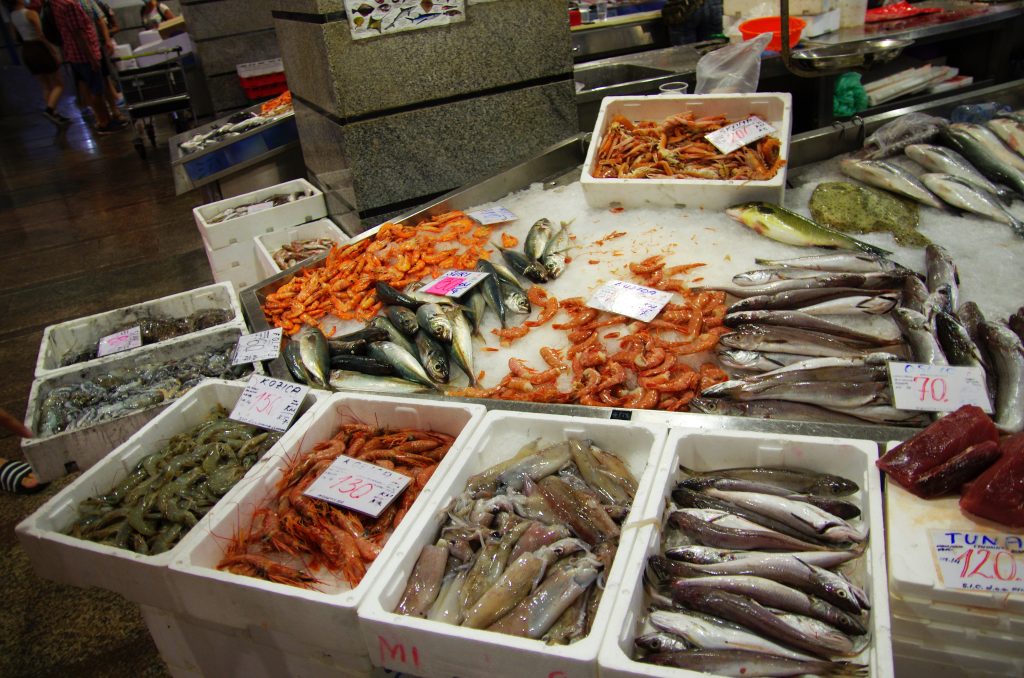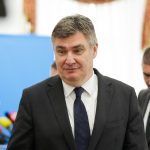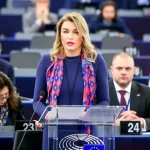This week in Croatian politics, we’ve had a deep dive into the controversial Sunday working ban placed on the trade sector. We’ve had more light shed on the unfolding situation with the detained Croatian hooligans in Greece and how Milanovic is allegedly doing the opposite of helping them. We’ve also noticed how petrol stations are the new place to be on Sundays.
The Greek Prime Minister responds to Milanovic’s statements regarding recent arrests
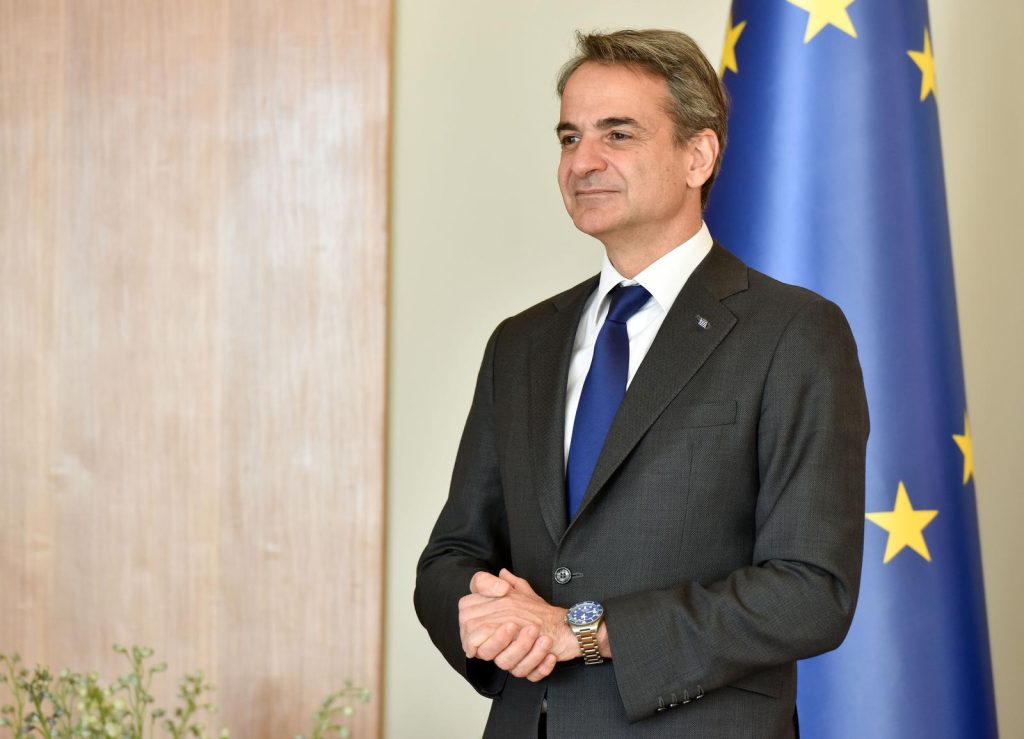
The recent arrest of a considerable number of Dimamo Zagreb fans in the Greek capital of Athens following the tragic stabbing and ultimate death of a Greek AEK fan has prompted a wave of reactions. Croatian president Zoran Milanovic has made quite a controversial statement, which will most likely not come as much of a surprise to most.
As Index vijesti/news writes, Greek Prime Minister Kyriakos Mitsotakis reacted to Croatian President Zoran Milanović’s statements about the group of Bad Blue Boys arrested and currently being held in Greece. It’s worth reminding ourselves that Zoran Milanović recently commented on the arrest and detention of about a hundred hooligans from the Bad Blue Boys who participated in the riots in Greece. In those riots, a Greek AEK fan was stabbed and killed. The Croatian President stated that the Greeks were treating the group of arrested Croats “like prisoners of war” and were ”scattering them around prisons in Greece and beating and raping them”. Quite the claim, indeed.
Milanović’s statement caused numerous controversies and reactions among not only others in Croatian politics, but also with the powers that be in nearby Greece, the country that was the subject of his very harsh criticism. This week, the Greek Ministry of Foreign Affairs reacted officially, and then the Greek Prime Minister himself commented on this rather wild claim.
“Criminal gangs arrange these deadly clashes under the pretext of it being about football”
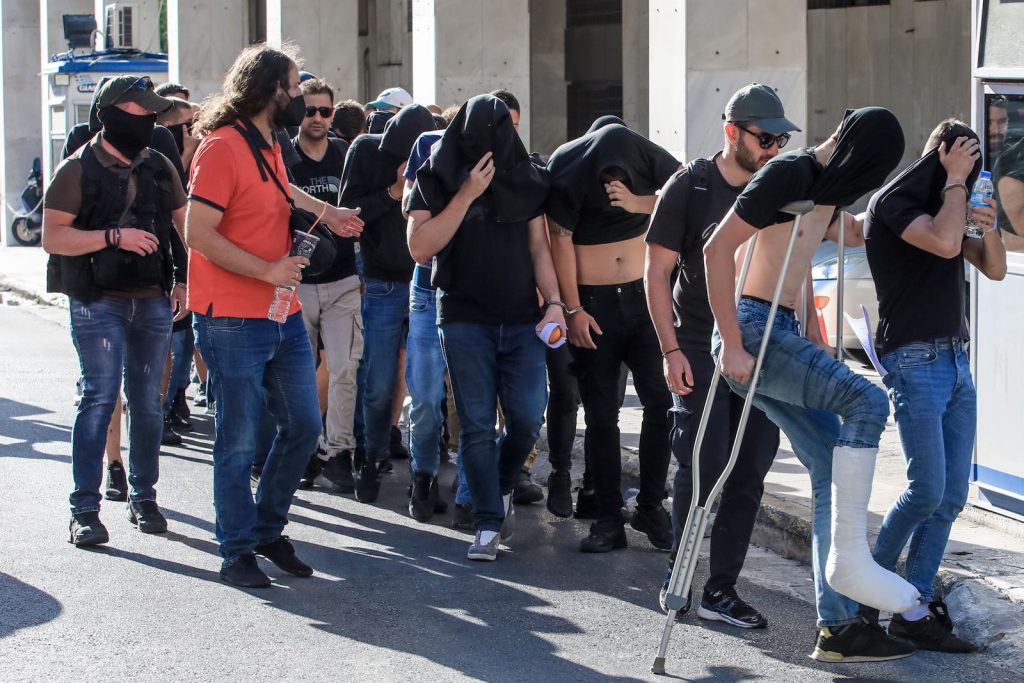
At the start of his statement after a meeting with members of the government, Greek PM Mitsotakis expressed his pain “at the loss of a human being at the altar of fan violence”. As he said: ”Hooliganism is a curse that poisons societies, and as we’ve seen, even relations between countries. We’re talking about criminal gangs that arrange deadly clashes under the pretext of it being about football.”
“Greece is a legal state. It has rules in place. The Greek judiciary is independent. Neither the country nor the judiciary accept proposals from any misinformed voice outside of Greek borders, even if it’s an official voice,” said the Greek prime minister, clearly referring to Zoran Milanović’s recent statements which will certainly do little to calm the situation.
After noting that “unfortunately, the attitude of groups and the media often doesn’t promote a culture of respect”, he emphasised that “everyone should be mobilised. That is why this meeting was held, which was productive. Greece is now reviewing its set of measures against violence in sport. Gaps have been identified that will be filled,” assured the Greek prime minister, stressing that “the goal won’t be achieved without the participation of the teams and their owners.”
Commenting on the murder of Greek AEK fan Michalis Katsouris, he said that “the culprits will be found and punished”, adding that “inactivity [on this issue] will not be tolerated”.
What exactly did the Croatian President say?
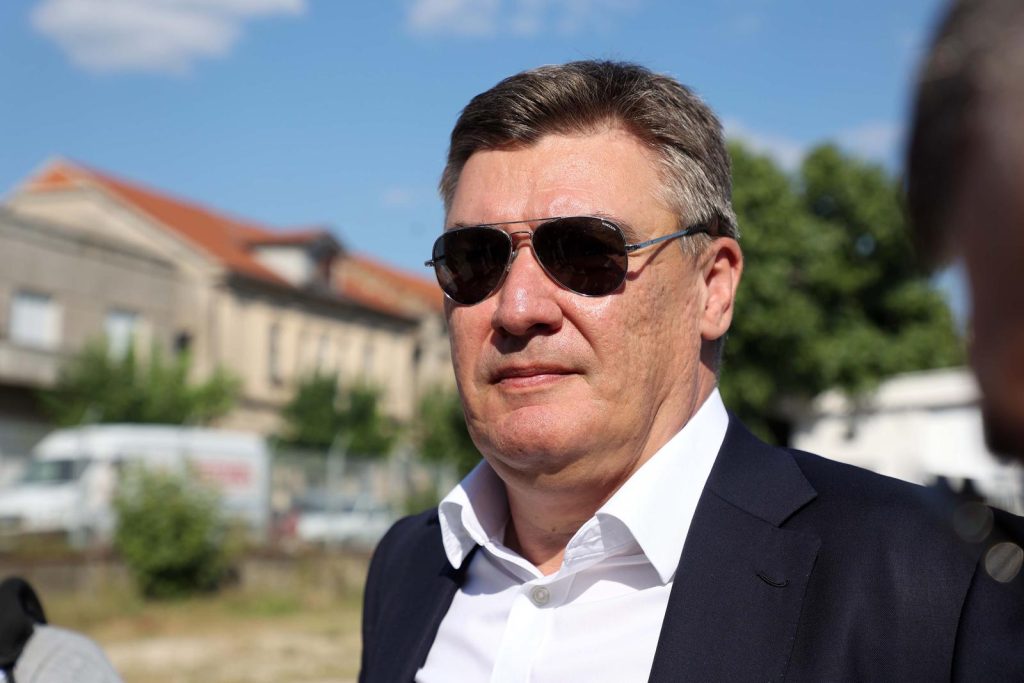
Let us remind you that President Zoran Milanović recently said that Croatian fans in Greece are currently trapped as if it were a war and that they’re being treated poorly. He claimed that he’d “assessed that the treatment of the Greek authorities towards them has nothing to do with law, democracy and respect for human rights.”
“This isn’t the rule of law! These people are being treated like prisoners of war. If I were the prime minister, I’d think long and hard about what I would do in this situation. It isn’t simple. This is on the border of the law of war. They’re treating them like a captured unit/prisoners of war,” Milanović said while in Jelsa on Hvar.
“How many Greeks are in custody?!”
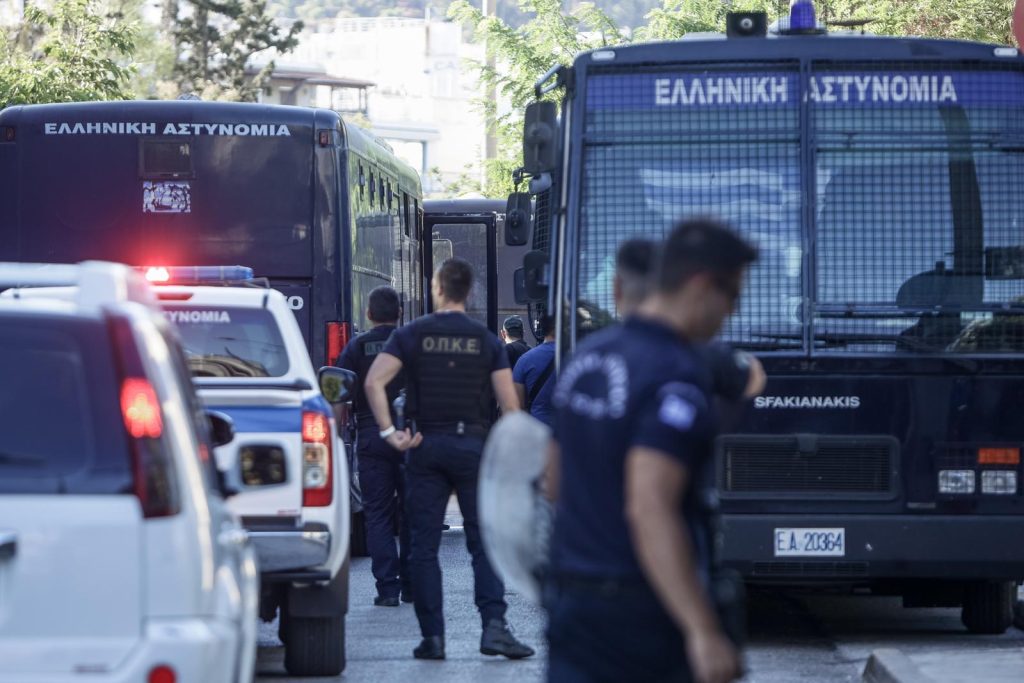
He added that he spoke about such a possible scenario a few days previously, fearing that it would be a “collective ethical punishment”. “I could go into the reasons why it was done now and why exactly it was done in Greece, what Greece needs to get from UEFA and why it’s important for them to transfer the responsibility to a hundred Croats. How many Greeks are in custody?!” the president asked.
He then attacked the Greek authorities, saying that even after the five-day detention of this group of Dinamo Zagreb fans “without explanation” – it wasn’t enough for them to identify who was responsible, instead they put them all in custody. “You have five days to pick out those responsible from one group of people, and you put them all in custody and scatter them all over Greece so that they get beaten and raped. Great, that’s the EU,” President Milanović rather shockingly stated.
It would be fine, he then went on to claim, if five or ten of them, out of a hundred, were in a more serious custodial situation. He also pointed out that this kind of treatment has nothing to do with the rule of law. “You cannot keep a hundred people in detention for five days. Those five days give you a lot of discretion to see what happened. These people are human beings and they’re Croatian citizens who have human rights,” he added, before warning that Croatian fans and citizens are “treated like weeds in Greece”.
“This has nothing to do with democracy”
“This has absolutely nothing to do with democracy, nor does it have anything to do with respect for human rights. If this is what the EU is today, then it’s better it doesn’t exist,” he emphasised. The president then said that he would like the prime minister to speak about this issue as well. He didn’t have to wait long for that, because Prime Minister Andrej Plenković was quick to comment on these scandalous statements.
Plenković: The parents of those arrested should ask Milanović to not bother “helping” them anymore
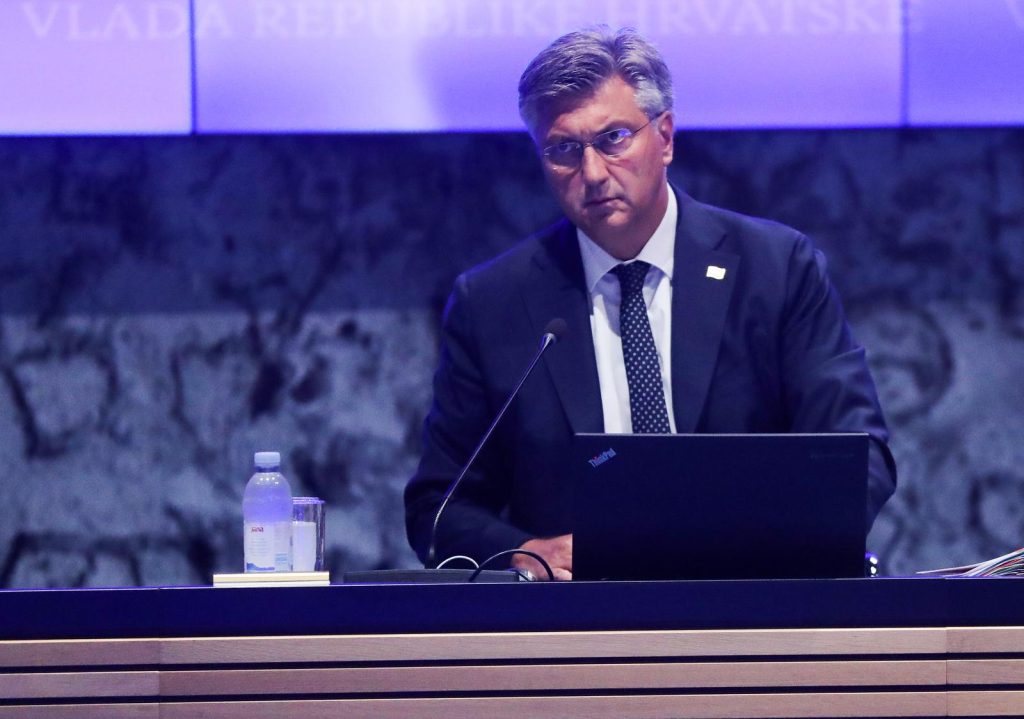
Plenković said that “the support and engagement of the Croatian state and diplomacy in the case of Croatian citizens detained in Greece is currently at a maximum”, and that Milanović is sending “messages that aren’t being well received there and won’t help those detained in Greece”.
“Yes to sport, yes to football, yes to fans, no to hooliganism, and a big no at that,” Plenković said, adding that the government, diplomatic service and ministers remain in constant contact with their Greek colleagues, and that the embassy and the consular department are always available to those needing help.
He asserted that we need the understanding of the Greek side, and that Milanović was sending messages that are being very poorly received there. Plenković believes that it would be good if the parents of those detained in Greece asked him not to bother “helping” them anymore. “You have statements being made by the president of the country which certainly will not help those there, nor do they help the systematic and serious work of those in Croatian politics, Croatian diplomats, consular officers and the government,” the prime minister said. He had previously stated that so many people couldn’t possibly bear equal responsibility for the crime, and believed that Greece should simply deport them back to Croatia.
The deeply unpopular Sunday work ban for the trade sector even sees HDZ controlled areas give it the finger

After many years of rather bizarrely trying to push through a ban on the trade sector working on Sunday, aside from sixteen chosen Sundays per year, the powers that be in Croatian politics finally managed to succeed. The move has caused a wave of reactions across the spectrum from those in Croatian politics, such as Split mayor Ivica Puljak, who was among the first to circumvent the move by announcing fair days, to employers and employees operating within the trade sector.
Puljak was joined by many others across the spectrum of Croatian politics in announcing fair days in which what the law defines as “occasional sales” can be made between certain times on non-working Sundays. Areas of Croatia which have a particular reliance on tourism have been the most vocal about the government pushing through a work ban in an apparently secular nation. More can be read about the who, what and where on that topic here. Plenkovic has stated that fair days aren’t succeeding because of some sort of loophole in the controversial new law. On top of that, petrol stations have rather unexpectedly transformed from a place you can buy fuel to a place which sells bread and other baked goods to those who want to make such purchases on Sundays. Some are even making their own pizza.
Petrol, bread, ice cream and pizza
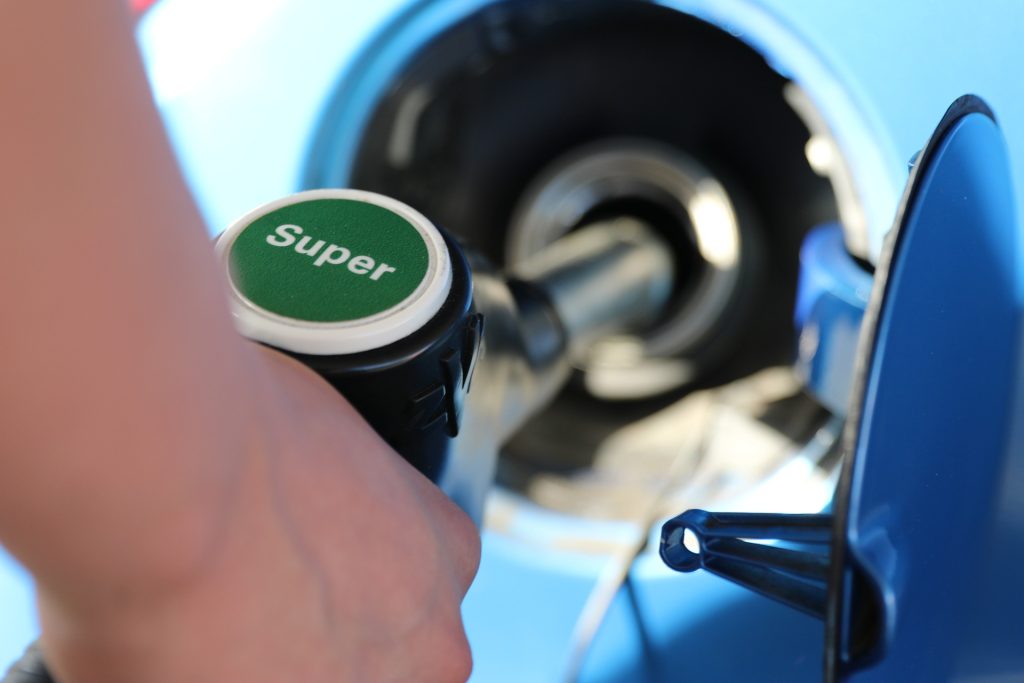
Vedran Salvia from Index has more on the topic.
One of the consequences of the unpopular new Trade Act is that there are big crowds forming on Sundays at petrol stations up and down the country, and especially on holidays. In addition to shops, the ban on working on holidays also applies to bakeries and markets. Only stores located in train and bus stations, airports and seaports, on board ferries, as well as in petrol stations, are allowed to operate as they did before.
Petrol stations are therefore becoming the places where the majority of people come to shop. As expected, those allowed to work noticed the increased demand and decided to take advantage of it. Petrol stations have now started selling bread as well. Not to mention pizza.
A petrol station in Vodice drew crowds recently – but not for fuel
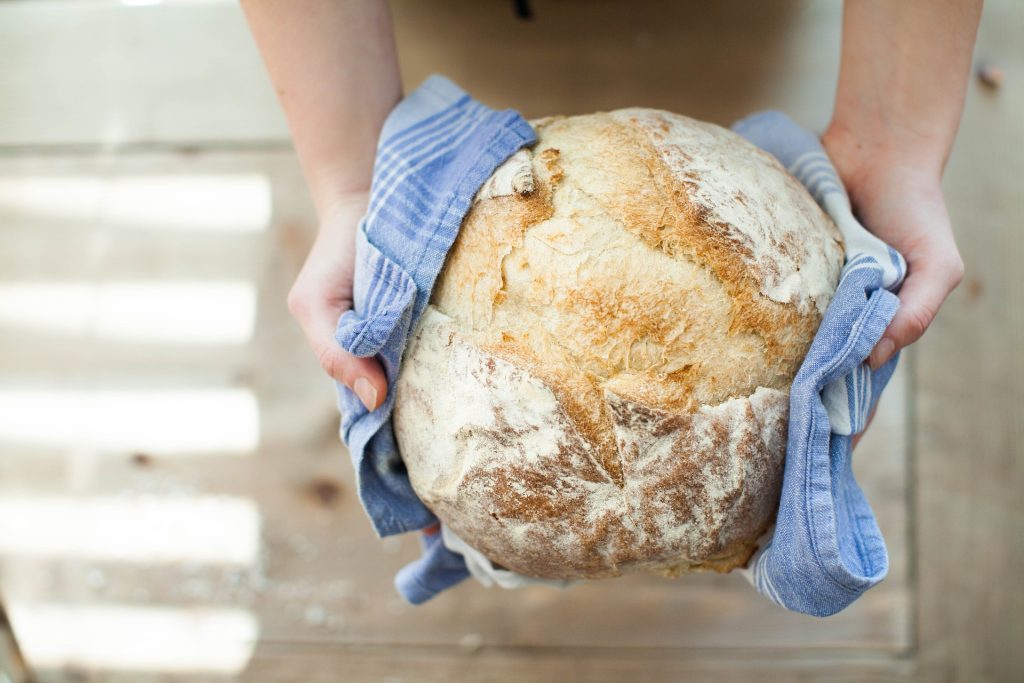
“People who asked for bread were being told by staff that they’d already everything two hours ago. That was at around 11:00 in the morning, they were told that they weren’t going to bake anything else. There were huge crowds at that petrol station all day long. The queue for the cashier was all the way outside,” added the reader who reported the Vodice petrol station crowds.
Will petrol stations really completely take over the work of shops and bakeries on Sundays and holidays following this controversial decision taken by those in Croatian politics? Judging by Index’s research, a part of the large chains of petrol stations have long since thrown themselves into all kinds of things aside from basic fuel, and it’s to be expected that this trend will only increase owing to the new law.
As for the smaller petrol stations, their owners aren’t so interested in the production of bread or the expansion of the assortment since, as most claim, it isn’t really profitable for them – yet, anyway.
Index sent inquiries to the leading fuel distributors across Croatia asking them if they were thinking of expanding their offers. One specific question was whether or not they plan to start baking or selling bread. It was only INA who bothered to respond…
INA: we’re expanding our range
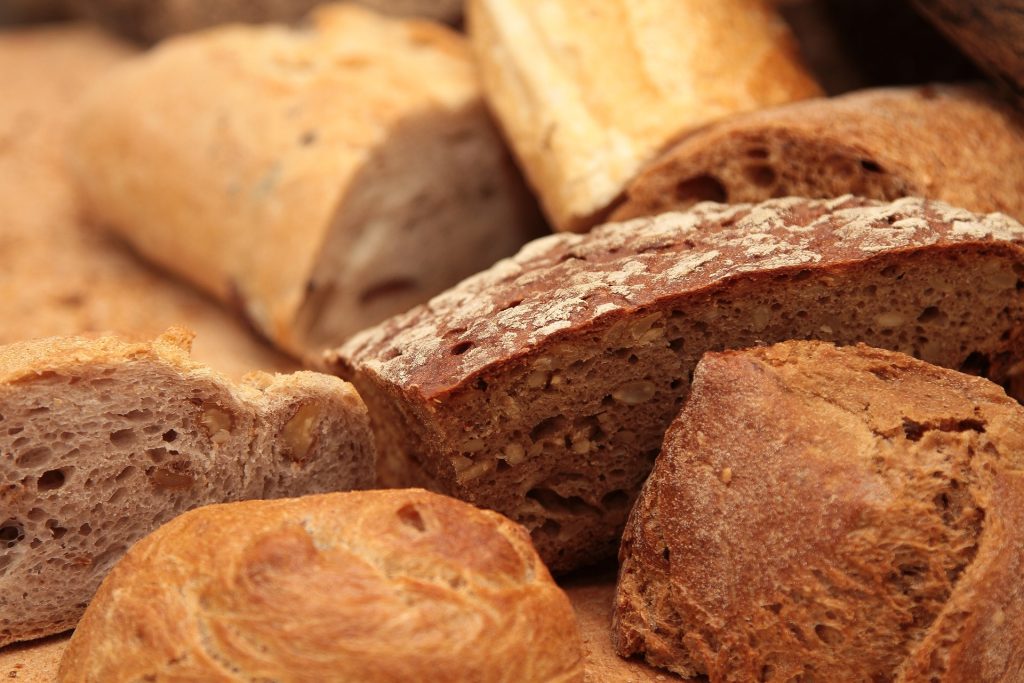
“INA has had bread in its offer even before the introduction of non-working Sundays in locations where there was a need for it (for example, in Rastovica and Spačva). The offer, as usual, is defined according to the demand and needs of the market,” read INA’s response to the question posed.
A slightly longer answer was received about their business goals and newly opened sales points.
“At our retail outlets, we offer excellent quality products and services that we’re working to further improve and expand in terms of our assortment. We’re especially focused on the gastronomic part of our offer within the Fresh Corner concept, where visitors have the opportunity to have the best refreshment in a pleasant environment,” they stated, adding that they’re also expanding the Fresh Corner concept, emphasising that the popular chain can now be found at 109 INA locations across Croatia. Hot dogs, which can be bought at INA pumps, can now be found at 180 INA locations nationwide.
Pizza and ice cream with your fuel, anyone?

Other fuel distributors didn’t bother to respond to the question, however, many of them already sell pastries. Tifon offers freshly prepared food at 25 petrol stations across the country. They also now bake their own pizzas, which are currently available in three types and are prepared in a mere two minutes. Shell’s decision to enter the production of ice cream also speaks volumes about the way Croatia’s petrol stations currently function. If those in Croatian politics keep pushing unpopular decisions such as this most recent one, it seems that more and more otherwise rather unlikely locations will end up picking up the slack where the trade sector’s hands are tied.

